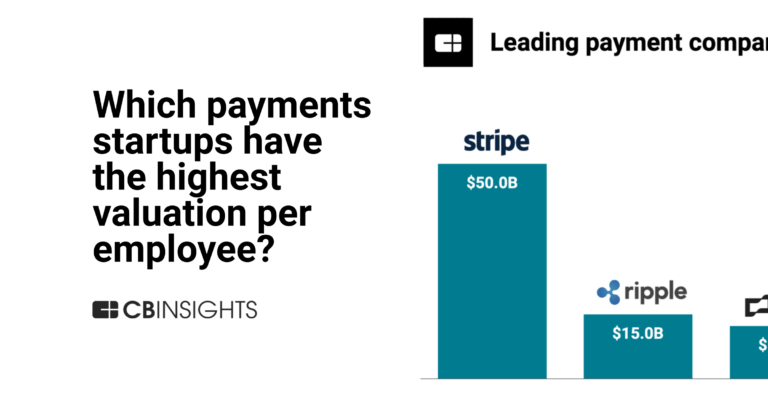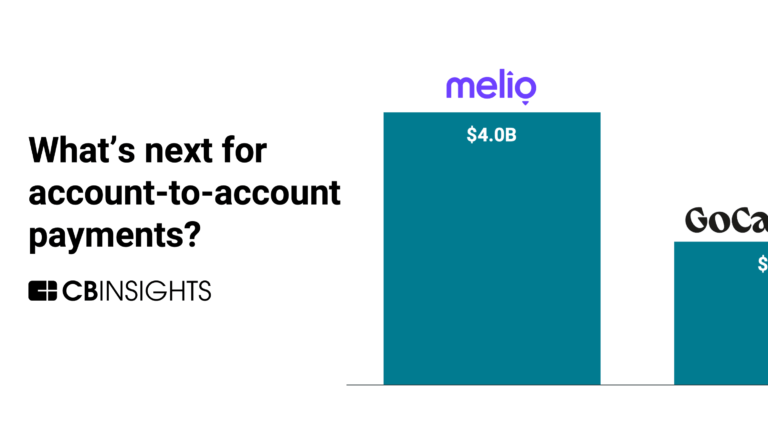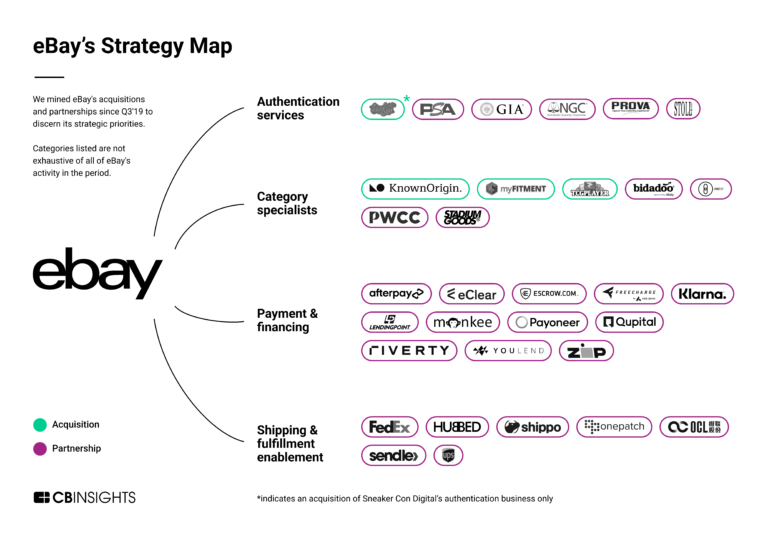
Klarna
Founded Year
2005Stage
Private Equity - V | AliveTotal Raised
$4.272BValuation
$0000Last Raised
$800M | 2 yrs agoRevenue
$0000Mosaic Score The Mosaic Score is an algorithm that measures the overall financial health and market potential of private companies.
-23 points in the past 30 days
About Klarna
Klarna specializes in providing payment solutions and services within the e-commerce sector. The company offers a platform for online shopping that includes price comparisons, deals, and various payment options to facilitate purchases for consumers. Klarna primarily serves the e-commerce industry by enabling a seamless shopping experience through its payment and financing services. It was founded in 2005 and is based in Stockholm, Sweden.
Loading...
ESPs containing Klarna
The ESP matrix leverages data and analyst insight to identify and rank leading companies in a given technology landscape.
The buy now pay later (BNPL) — B2C payments market offers a flexible payment solution for consumers, allowing shoppers to make purchases and split the cost into multiple installments, typically interest-free. BNPL solutions provide an alternative to traditional credit cards and enable customers to make purchases without upfront payment or the need for a credit check. BNPL solutions typically offer…
Klarna named as Leader among 15 other companies, including PayPal, Affirm, and Synchrony.
Loading...
Research containing Klarna
Get data-driven expert analysis from the CB Insights Intelligence Unit.
CB Insights Intelligence Analysts have mentioned Klarna in 23 CB Insights research briefs, most recently on Jun 25, 2024.
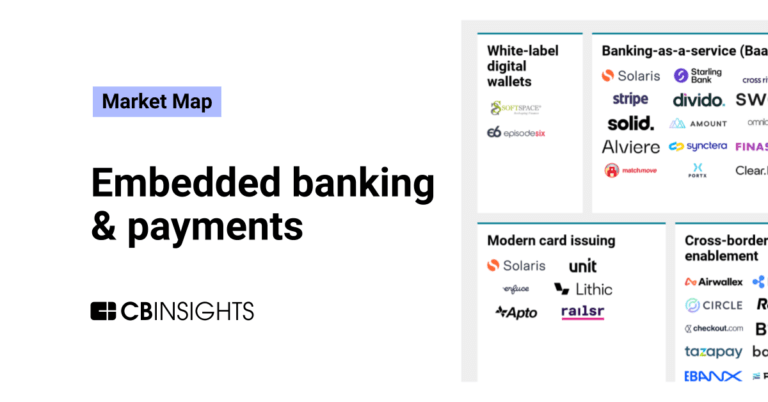
May 8, 2024
The embedded banking & payments market map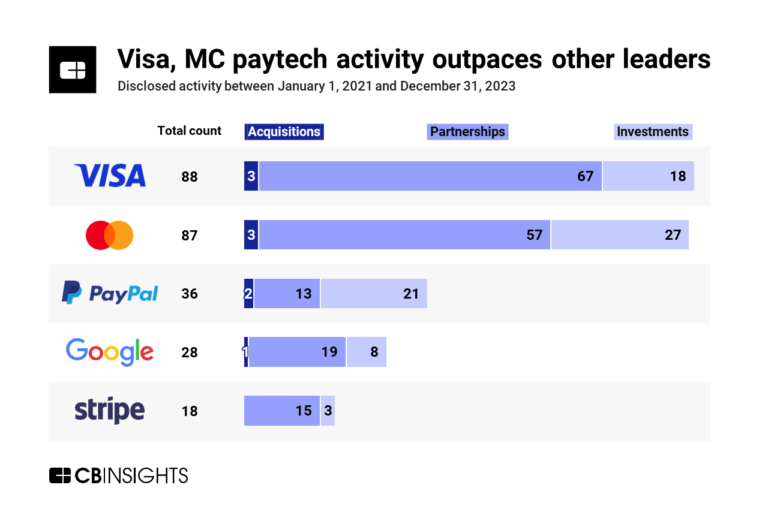
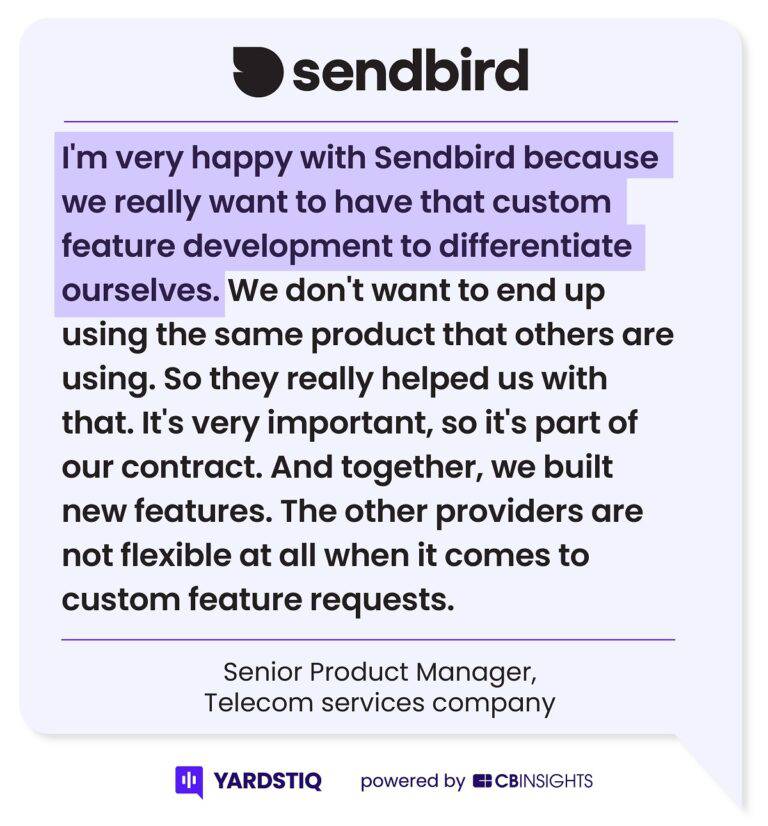
Oct 11, 2022
The Transcript from Yardstiq: Klarna vs. AfterpayExpert Collections containing Klarna
Expert Collections are analyst-curated lists that highlight the companies you need to know in the most important technology spaces.
Klarna is included in 11 Expert Collections, including E-Commerce.
E-Commerce
11,032 items
Companies that sell goods online (B2C), or enable the selling of goods online via tech solutions (B2B).
Store tech (In-store retail tech)
1,711 items
Companies that make tech solutions to enable brick-and-mortar retail store operations.
Unicorns- Billion Dollar Startups
1,244 items
Fintech 100
1,247 items
250 of the most promising private companies applying a mix of software and technology to transform the financial services industry.
Digital Lending
2,470 items
This collection contains companies that provide alternative means for obtaining a loan for personal or business use and companies that provide software to lenders for the application, underwriting, funding or loan collection process.
SMB Fintech
1,231 items
Klarna Patents
Klarna has filed 37 patents.
The 3 most popular patent topics include:
- classification algorithms
- machine learning
- user interfaces

Application Date | Grant Date | Title | Related Topics | Status |
|---|---|---|---|---|
4/7/2022 | 8/20/2024 | Machine learning, Classification algorithms, Computational linguistics, Artificial neural networks, HTML5 | Grant |
Application Date | 4/7/2022 |
|---|---|
Grant Date | 8/20/2024 |
Title | |
Related Topics | Machine learning, Classification algorithms, Computational linguistics, Artificial neural networks, HTML5 |
Status | Grant |
Latest Klarna News
Sep 19, 2024
Some of the world's largest tech companies have called on the European Union to provide regulatory certainty on AI, warning that the region risks falling behind due to "inconsistent" decision-making. In an open letter published in the Irish Examiner signed by Meta, Spotify, SAP, Klarna, Patrick Collison of Stripe and several others, it said the EU would miss out on key cornerstones of AI innovation without consistent rules. The cohort said these included ‘open’ model developments, which are made available without charge for everyone to use, adding that they strengthen sovereignty and control by allowing organisations to download and fine-tune the models wherever they want. It also noted developments in the latest ‘multimodal’ models, which operate fluidly across text, images and speech and will enable the next leap forward in AI. "The difference between text-only models and multimodal is like the difference between having only one sense and having all five of them," the letter stated. Europe to be 'deprived' of tech advances The tech giants said open models can turbocharge productivity, drive scientific research and add hundreds of billions of euros to the European economy, adding that without them, Europeans will be deprived of the technological advances taking place across the US, China and India. "Research estimates that Generative AI could increase global GDP by 10% over the coming decade," it said, citing data from JP Morgan earlier this year. "EU citizens shouldn’t be denied that growth." The cohort of tech firms and signatories said the EU's ability to compete with the rest of the world on AI and reap the benefits of open-source models rests on its single market and shared regulatory framework. "If companies and institutions are going to invest tens of billions of euros to build Generative AI for European citizens, they require clear rules, consistently applied, enabling the use of European data. "But in recent times, regulatory decision-making has become fragmented and unpredictable, while interventions by the European Data Protection Authorities have created huge uncertainty about what kinds of data can be used to train AI models." "This means the next generation of open source AI models, and the products and services we build on them, won’t understand or reflect European knowledge, culture or languages," the group wrote. Europe now faces a major choice, the cohort noted, saying it can choose to reassert the principle of harmonisation enshrined in regulatory frameworks like GDPR and offer a modernised interpretation, or it can continue to "reject progress and contradict the ambitions of the single market. "Europe can’t afford to miss out on the widespread benefits from responsibly built open AI technologies that will accelerate economic growth and unlock progress in scientific research." "For that we need harmonised, consistent, quick and clear decisions under EU data regulations that enable European data to be used in AI training for the benefit of Europeans." More in this section
Klarna Frequently Asked Questions (FAQ)
When was Klarna founded?
Klarna was founded in 2005.
Where is Klarna's headquarters?
Klarna's headquarters is located at Sveavagen 46, Stockholm.
What is Klarna's latest funding round?
Klarna's latest funding round is Private Equity - V.
How much did Klarna raise?
Klarna raised a total of $4.272B.
Who are the investors of Klarna?
Investors of Klarna include Sequoia Capital, Commonwealth Bank of Australia, BESTSELLER, Silver Lake, CPP Investments and 67 more.
Who are Klarna's competitors?
Competitors of Klarna include Bolt, Zilch, Colendi, iwoca, Stripe and 7 more.
Loading...
Compare Klarna to Competitors

Stripe operates as a technology company that specializes in online payment processing and financial infrastructure for Internet businesses. The company provides a suite of products that enable businesses to accept payments, manage billing and subscriptions, handle in-person transactions, and integrate various financial services into their operations. Its platform is designed to support startups, enterprises, and everything in between with scalable, API-driven solutions. Stripe was formerly known as DevPayments. It was founded in 2010 and is based in South San Francisco, California.
PayNearMe develops technology to facilitate the end-to-end customer payment experience. It offers a billing and payment platform. Its platform helps users pay with cash for a range of goods and services from companies in e-commerce, property management, consumer finance, and transportation, enabling businesses and government agencies as well as retail stores to digitize cash collection processes. PayNearMe was formerly known as Handle Financial. The company was founded in 2009 and is based in Santa Clara, California.

Pine Labs offers cloud-based point-of-sale (PoS) payment solutions. The company allows merchants to accept credit or debit card payments, as well as methods such as e-wallets, quick response (QR) code payment solutions, and unified payments interface (UPI)-based solutions. The company was founded in 1998 and is based in Noida, India.

Lemonway is a payment institution that specializes in providing payment processing and wallet management solutions for marketplaces, crowdfunding platforms, and e-commerce websites. The company offers a modular payment system that enables clients to handle transactions, from collection to disbursement, with a focus on KYC/AML regulatory compliance. Lemonway primarily serves the e-commerce industry, crowdfunding platforms, and other online marketplaces. It was founded in 2007 and is based in Paris, France.

PingPong specializes in cross-border payment solutions for businesses. The company offers services such as facilitating international payments through virtual accounts, managing invoices for global clients, processing payments to suppliers and freelancers, and handling tax payments like VAT and GST. PingPong also provides foreign exchange management and integrates with QuickBooks for streamlined bookkeeping. It was founded in 2015 and is based in San Mateo, California.

TouchBistro is a company that focuses on providing an all-in-one point of sale (POS) and restaurant management system in the restaurant industry. The company offers a range of services including front of house, back of house, and guest engagement solutions, which help restaurateurs streamline their operations, manage their menu, sales, staff, and more. These services are designed to increase sales, improve guest experiences, and save time and money. It was founded in 2011 and is based in Toronto, Ontario.
Loading...

